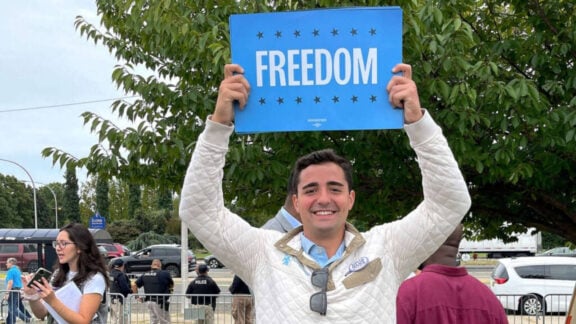The new government hammered the last nail into the coffin of «multicultural affairs» when it did not include the title in its list of portfolios.
Research shows that the majority of Australians are positive about diversity in Australia.
Despite strong representations by The Federation of Ethnic Communities Councils’ of Australia (FECCA) and others, the title of ‘Multicultural Affairs’ remains dropped.
As many commentators in the media have already pointed out, ‘multicultural affairs’ has been beating a hasty retreat on both sides of politics.
Once a vibrant and mainstream agenda that represented a visionary and forward looking Australia under the Hawke government when it was part of the Prime Minister’s portfolio, it became an apologetic afterthought after the last multicultural policy expired in 2006.
It was shunted around in various guises post 2006, but never emerged as a reinstated national multicultural policy.
Now, it has been effectively buried.
‘Multicultural affairs’ is more than immigration and citizenship.
It is a national statement on the reality that Australia is an increasingly complex and diverse society.
It is a national statement that will celebrate this reality and utilise it to create social and economic advantages for all Australians.
The ‘symbolism’ of retaining or dropping ‘Multicultural Affairs’ is a powerful signal at this time in Australia.
Migrant communities have communicated strongly that they have felt targeted during the current elections.
The change of title is being perceived as the final withdrawal of support from the government towards their concerns.
The recently launched Scanlon Foundation survey, ‘Mapping Social Cohesion,’ indicated that anti-immigration feelings are highest when these issues are politicised.
The election pitched migrant communities themselves against each other by breaking us up into ‘old’ and ‘new’ arrivals.
Such divisive rhetoric ensures that the power of a united multicultural sector is diffused, with the outcome that a national multicultural agenda is once again off the radar.
A positive step is urgently needed from the government to allay the fears of Australia’s migrants.
The reinstatement of the title of ‘Multicultural Affairs’ will be received with relief by the migrants who perceive that there is a rising tide of rejection of diversity by political parties on all sides.
A positive step is also needed from all sectors of our own communities to realise that the multicultural agenda is one that requires a united voice from all of us regardless of our ethnicity, our political allegiances and the time of our arrival in Australia.
We advocate for a multicultural agenda that is inclusive and addresses the government’s social inclusion agenda.
A multicultural agenda for Australia should be a national policy that is embedded in all sectors across government and ensures access and equity for all Australians.
It addresses the reality of cross cultural interaction which is part of the daily lives of every Australian regardless of their ethnicity.
The blow to the multicultural agenda that is delivered by the current portfolio title is seen as a lack of support for the social inclusion agenda and a rejection of Australia’s multicultural reality.
At a time when the diversity of Australian society is increasing, we are in retreat from this.
FECCA asks multicultural communities to express support for the retention of the portfolio title of «Multicultural Affairs» as a sign of the government’s affirmation of leadership on this issue.
We urge you to write to Senator Kate Lundy (senator.lundy@aph.gov.au) to add your voices to FECCA’s ongoing efforts in this matter.
Research shows that the majority of Australians are positive about diversity in Australia.
This is not the moment to fracture this positive attitude by confusing signals from our leadership.
This is the moment to build on the support and do what we as Australians used to do so well – lead the world in modelling an innovative multicultural nation that has its eyes set on the future.
Together we must ensure that we do not live in an Australia where we are ashamed of our multicultural reality.
Pino Migliorino, Chair, Federation of Ethnic Communities’ Councils of Australia








